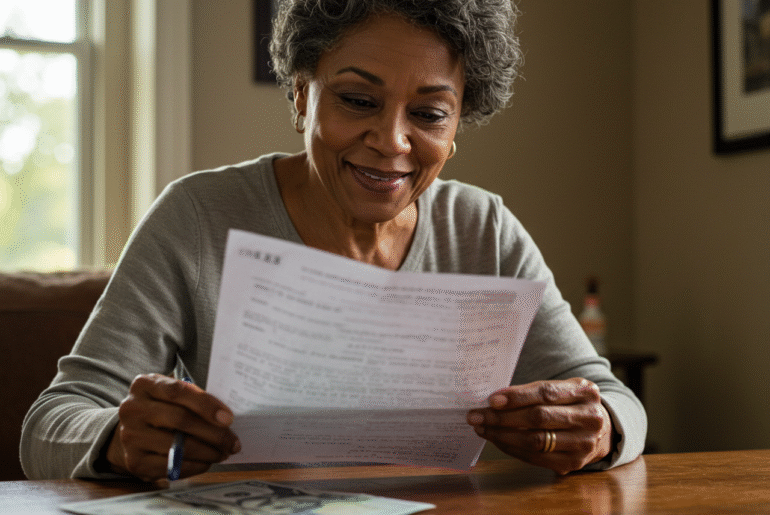This article may contain references to products or services from one or more of our advertisers or partners. We may receive compensation when you click on links to those products or services. Nonetheless, our opinions are our own.
The information presented in this article is accurate to the best of our knowledge at the time of publication. However, information is subject to change, and no guarantees are made about the continued accuracy or completeness of this content after its publication date.
- Introduction
- Understanding the Current Landscape of Private Equity and Your Pension
- Evaluating the Risks: What You Need to Know About Private Equity Investments
- The Impact of Market Trends on Your Retirement Savings
- Strategies for Safeguarding Your Pension Against Uncertain Investments
- Conclusion: Shaping Your Pension Strategy for the Future
- Frequently Asked Questions
- Recommended Reads
Introduction
As you plan for your financial future, understanding the role of private equity in retirement plans is becoming increasingly important. Once regarded as a lucrative avenue for securing a comfortable retirement, private equity investments are now under scrutiny due to their risks and diminishing returns. This section highlights how the shifting dynamics of the private equity market may affect pension plans, providing valuable insights to help you make more informed decisions about your retirement strategy.
Understanding the Current Landscape of Private Equity and Your Pension
Private equity has become a significant player in the investment world, particularly for pension funds. When planning for retirement, it is essential to understand how this market segment operates and its potential impact on long-term financial security. While many pension funds have invested in private equity to pursue higher returns, the reality is more complex. Key considerations include:
- High Fees: Private equity funds often charge elevated management and performance fees, which can reduce returns. Evaluating these costs and understanding their effect on pension growth is essential.
- Liquidity Risks: These investments typically lock funds for extended periods, limiting access to capital when needed. Assess your liquidity needs before making such investments.
- Market Volatility: Although private equity can sometimes counterbalance downturns in public markets, it also carries its own set of risks. Stay informed about market movements and their potential impact on your pension value.
Average Returns Comparison Over 10 Years
| Investment Type | Average Return (%) |
|---|---|
| Private Equity | 12% |
| Public Equity | 8% |
| Fixed Income | 4% |
Awareness of these dynamics can help you make more thoughtful decisions about your pension. A balanced investment strategy with diversified assets typically yields consistent results over time.
Evaluating the Risks: What You Need to Know About Private Equity Investments
Private equity offers the potential for high returns but comes with a unique set of risks. Consider the following points when evaluating such opportunities:
- Illiquidity: Unlike stocks or bonds, private equity investments are often long-term commitments with limited access to funds.
- Market Volatility: Economic shifts can significantly impact private equity performance, especially in cyclical sectors.
- Due Diligence: Research is critical. Choose reputable firms with transparent reporting and a solid performance track record.
- Fees: High management and performance fees can eat into returns. Understand these costs thoroughly before proceeding.
Sample Asset Allocation for Diversification
| Asset Type | Suggested Allocation (%) |
|---|---|
| Stocks | 40% |
| Bonds | 30% |
| Private Equity | 20% |
| Cash Equivalents | 10% |
Private equity can enhance your portfolio, but careful planning is essential. Consult financial professionals to ensure your investments align with long-term goals.
Voted "Best Overall Budgeting App" by Forbes and WSJ
Monarch Money helps you budget, track spending, set goals, and plan your financial future—all in one app.
Get 50% OFF your first year with code MONARCHVIP
The Impact of Market Trends on Your Retirement Savings
The role of private equity in retirement portfolios is evolving. Pension funds are reducing their exposure to private equity due to underperformance and increased risk, signaling a broader shift in investor behavior.
Key Takeaways
- Diversification Matters: Volatile markets underscore the importance of a diversified investment approach.
- Risk Tolerance: Evaluate your tolerance for volatility. Private equity may not be suitable for every investor.
- Long-Term Focus: Resist reacting to short-term market fluctuations. Stay committed to your retirement objectives.
Performance Comparison of Asset Classes Over the Past Decade
| Asset Class | Average Annual Return (%) |
|---|---|
| Stocks | 10% |
| Bonds | 5% |
| Private Equity | 12% |
Remaining adaptable and informed lets you make strategic decisions aligning with your retirement plans.
Strategies for Safeguarding Your Pension Against Uncertain Investments
A proactive and diversified approach is key to protecting your pension from volatility. Consider the following options:
- Index Funds: Low-cost options offering broad market exposure.
- Fixed Income Securities: Provide stability and predictable returns.
- Real Estate Investment Trusts (REITs): Can hedge against inflation and offer income from property assets.
Tactics to Protect Your Pension Fund
| Strategy | Description |
|---|---|
| Rebalancing | Adjust your portfolio to maintain your desired asset mix. |
| Professional Advice | Consult advisors familiar with the risks of private equity. |
| Emergency Fund | Maintain liquidity to avoid forced selling during downturns. |
These strategies can help you build a resilient pension plan that withstands market uncertainties.
Exploring Alternative Investment Options for a Stronger Financial Future
Looking beyond traditional public equities can offer new opportunities. Here are alternative investments worth considering:
- Real Estate: Provides income and capital appreciation through direct ownership or REITs.
- Private Equity: Offers high return potential if capital is committed long-term.
- Cryptocurrencies: Volatile, but can offer significant growth potential when approached cautiously.
- Commodities: Tangible assets like gold and oil can hedge against inflation.
Comparison of Alternative Investments
| Investment Type | Potential Advantages |
|---|---|
| Real Estate | Passive income, appreciation |
| Private Equity | High returns, portfolio diversification |
| Cryptocurrencies | High growth potential, diversification |
| Commodities | Inflation hedge, tangible asset |
Understanding these options helps you create a tailored and secure financial plan.
Taking Action: Steps to Engage with Your Pension Plan Provider
Being proactive with your pension provider can improve your retirement outlook. Start with these steps:
- Contact Your Provider: Ask about your investments, associated fees, and performance.
- Request a Review: Evaluate asset allocation and historical performance.
- Stay Informed: Subscribe to updates and utilize online portals for insights.
If online tools are challenging to navigate, ask for assistance. Engaging with your provider allows you to take control of your financial future.
Conclusion: Shaping Your Pension Strategy for the Future
As the role of private equity in pension plans evolves, staying informed about the potential risks and rewards is critical. A diversified, thoughtful approach can help safeguard your retirement savings while mitigating uncertainty in the financial markets. Engaging with your pension provider and regularly reviewing your portfolio will position you to make informed decisions, ultimately strengthening your financial future.
Frequently Asked Questions
What is the current state of pensions regarding U.S. private equity?
Many pension funds are seeing lower returns from private equity, raising concerns about their ability to meet future obligations.
Why are private equity investments underperforming?
Increased market competition, rising valuations, economic uncertainty, and insufficient fund management expertise are factors contributing to underperformance.
How are pension funds responding to these challenges?
Pension funds are reducing their private equity allocations, seeking diversification, and focusing on transparency and due diligence.
What does this mean for retirees?
If low returns persist, retirees could face reduced benefits, and their financial security in retirement may be at risk without necessary adjustments.

Reviewed and edited by Albert Fang.
See a typo or want to suggest an edit/revision to the content? Use the contact us form to provide feedback.
At FangWallet, we value editorial integrity and open collaboration in curating quality content for readers to enjoy. Much appreciated for the assist.
Did you like our article and find it insightful? We encourage sharing the article link with family and friends to benefit as well - better yet, sharing on social media. Thank you for the support! 🍉
Article Title: Protect Your Pension from Private Equity Risks
https://fangwallet.com/2025/05/11/private-equity-risks/The FangWallet Promise
FangWallet is an editorially independent resource - founded on breaking down challenging financial concepts for anyone to understand since 2014. While we adhere to editorial integrity, note that this post may contain references to products from our partners.
The FangWallet promise is always to have your best interest in mind and be transparent and honest about the financial picture.
Become an Insider

Subscribe to get a free daily budget planner printable to help get your money on track!
Make passive money the right way. No spam.
Editorial Disclaimer: The editorial content on this page is not provided by any of the companies mentioned. The opinions expressed here are the author's alone.
The content of this website is for informational purposes only and does not represent investment advice, or an offer or solicitation to buy or sell any security, investment, or product. Investors are encouraged to do their own due diligence, and, if necessary, consult professional advising before making any investment decisions. Investing involves a high degree of risk, and financial losses may occur including the potential loss of principal.
Source Citation References:
+ Inspo
There are no additional citations or references to note for this article at this time.












































